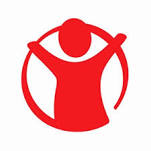|
Child Safeguarding: Level 3 - the responsibilities of the post may require the post holder to have regular contact with or access to children or young people |
|
ROLE PURPOSE: The European Instrument for Democracy & Human Rights (EIDHR) MEAL Coordinator takes the overall responsibility of operationalizing the MEAL system and SCI MEAL approach for the EIDHR programme. The post-holder will be expected to lead on MEAL system implementation including monitoring of program quality, rolling out accountability initiatives, supporting program evaluations and leading on MEAL budgeting. The Program MEAL Coordinator will lead project research works for innovative programming to achieve the project desired change. The post-holder will support Project implementation staff based in SCI Shinyanga Office as well as partner’s staffs in data consolidation and management and quality management of project implementation; The MEAL Coordinator will be expected to lead MEAL capacity building of EIDHR project staff and partners for successful delivery and attainment of project objectives. |
|
SCOPE OF ROLE: Save the Children has been operational in Tanzania since 1986 providing support to children through developmental and humanitarian relief programmes delivered in support of Government of Tanzania priorities and policies both directly and through local partners. Current programming focuses on child protection, child rights governance, education, nutrition, HIV/TB and emergency response. In 2012, as part of a global reorganization process, Save the Children combined programmes of SCUK, SCUS, SC Sweden to create a single operation in Tanzania. We currently have an operational presence in Dodoma, Shinyanga, Zanzibar, Songwe, and Kigoma and we work through partners in other parts of the country. We employ nearly 100 staff and have an annual operating budget of approximately $10 million.
The EIDHR project will have community level, district level, and regional level interventions. The overall objective is to support local civil society to combat traditional practices and discriminatory gender norms that harm children and youth, particularly adolescent girls. The specific objective of this programme is to empower and enable civil society in Shinyanga region to counter harmful traditional practices that violate rights of the most vulnerable children, notably adolescent girls, and share learning with other regions. Focused on a Behaviour Centred Programming (BCP) approach that brings together Social and Behaviour Change Communications (SBCC) and Community Capacity Strengthening (Community Mobilisation), we will take a comprehensive two-pronged approach to support change and maintain positive practices for individuals and communities. The final beneficiaries are girls and boys in Shinyanga Region at risk of harmful traditional practices, especially child marriage, community leaders/elders, traditional leaders and policymakers. Coordinate and KAP survey, lead adaption of the CHOICES curriculum in schools and out of school children and youth and participate in engaging parents through VOICES, and teachers and community leaders using PROMISES tools which will be reviewed and adapted in this programme. Reports to: ASRHR / EIDHR Project Manager and MEAL Specialist with a dotted line to Shinyanga office Area Program Manager. Dimensions: Maintains strong linkages with the Tanzania team, ASRHR, Advocacy staff, Education, Partners’ Relationship Manager and CP, CRG Technical Specialists (TS) through the line manager. Staff directly reporting to this post: None |
|
KEY AREAS OF ACCOUNTABILITY: Together with the MEAL team and in collaboration with the EIDHR Programme Manager and partners, the MEAL Coordinator will be responsible for establishing and promoting the use of MEAL systems to ensure that the EIDHR project team and partners: - Is informed on the extent to which the EIDHR development interventions are affecting the lives of the targeted beneficiaries. - Receives regular, timely and context specific, meaningful feedback from EIDHR program beneficiaries, partners and project staff. The feedback should effectively inform and signal areas where strategic attention and improvement is required. - Generate evidence-based knowledge on the positive and negative impacts the EIDHR programme interventions are realized over the communities during SCI works - Collect information that demonstrates the significant value of combining research and innovative programming to achieve the programme intended results and influence policy change. Program Monitoring, Assessments, Evaluations and Reporting - In collaboration with the EIDHR Programme Manager and MEAL, Specialist establish and ensure implementation of a strong MEAL system for the EIDHR programme (MEAL plans, indicators, performance tracking tables, monitoring tools, benchmarks etc.) - Lead EIDHR programme baseline studies, formative assessments, mid-term evaluations, final evaluations and other research studies as well as learning events as part of annual DIPs. - In collaboration with EIDHR Programme Manager and MEAL unit, develop process, output and outcome level Quality Benchmarks and regularly review progress on indicators/achievement of targets (LFA). - Review EIDHR MEAL reports to highlight key project strengths and areas of improvement, and use learning from monitoring reports for project planning and implementation. - Review accountability to EIDHR program beneficiaries’ data and reports and provide technical support to implementation team using key learning from accountability system for program development, planning, improvement, and implementation. - Identify EIDHR programme staff MEAL capacity needs and inform EIDHR Program Manager and MEAL unit and set aside MEAL capacity building plan for programme staff and partners. - Provide technical support to the EIDHR implementing staff in Shinyanga office in measuring achievement and progress toward program objectives and results as well as development of MEAL systems for EIDHR programme - Develop and maintain the Indicator Performance Tracking Tool and Activity tracker for EIDHR programme that will guide preparation of programme progress updates on a monthly basis - Lead roll out of EIDHR programme MEAL systems and processes to measure achievement and progress towards achieving project objectives/outcomes and results/outputs against indicators (indicator performance tracker tables, quality checklists, etc.). - Lead monitoring of program quality using quality benchmarks and ensure that findings are shared with relevant stakeholders and explicitly fed back into programme decision making, incorporating accountability and learning. - Contribute to child-focused and child-led programme implementation, by ensuring children’s participation, reporting back to children, and child-led M&E for EIDHR programme - Lead compilation of data and reporting on EIDHR program in relation to SCI global indicators and total beneficiaries reach reports Partner Management - Contribute to identify the capacity of present and potential partners in quality programming and ensure that MEAL support is provided; - Ensure that MEAL aspects of EIDHR programme implemented by existing partners are enforced. - Ensure EIDHR programme staff and partners’ staff MEAL capacity building plan implemented. Accountability and Organisational Learning - In collaboration with EIDHR Programme Manager facilitate with learning activities like planning for EIDHR program review workshops, prepare lessons learned reports, etc. - Ensure participation of beneficiaries and children in monitoring and evaluating Save the Children development programmes, specifically, EIDHR programme. - Ensure accountability systems are established engaging beneficiaries and stakeholders in evaluations, impact assessments and research. Representation and Advocacy - Ensure that Save the Children's work is coordinated with efforts of other agencies and government, advocating for the specific needs of children. - Ensure that Save the Children's work is coordinated in collaboration with other SC sector teams to strengthen programming and impact for children. - Provide appropriate information of EIDHR programme to facilitate the effective engagement with donor and Tanzania government officials at all required levels as required to ensure Save the Children is considered a preferred and active partner in Tanzania and in the Shinyanga Region specifically. Staff Management, Mentorship, and Development - Ensure that EIDHR programme and partners staff understand and are able to perform their role - Building capacity and knowledge of EIDHR programme staff and partners on MEAL systems, strengthening organizational knowledge and understanding of effective programming through networking, experience sharing and searching for innovative ideas - Identify training needs of staff in respect to applying monitoring plans/tools; collect, analysis and report on findings periodically and conduct training to address the capacity gaps - Demonstrate and practice behavior that develops a sense of an organisational culture that reflects our dual mandate values, promotes accountability and high performance, encourages a team culture of learning, creativity, and innovation, and emancipates EIDHR programme team to deliver outstanding results for children and excellent customer service for our members and donors. Child Safeguarding All staff have an obligation to ensure they fully understand the provisions of the Child Safeguarding Policy, the Code of Conduct and related policies. They must conduct themselves in accordance with the rules of the Child Safeguarding Policy, in their personal and professional lives – which includes reporting suspicions of child abuse. - All staff must ensure the way they are carrying out their work is not putting children at risk (or further risk). |
|
SKILLS AND BEHAVIOURS (our Values in Practice) COMPETENCIES AND SKILLS Applying Technical and Professional Expertise:
Developing self and others:
Problem Solving and Decision Making:
Working effectively with others
Delivering Results
|
|
QUALIFICATIONS AND EXPERIENCE
|

